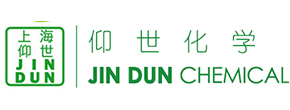120
How to Choose the Right Organic Silicon Defoaming Agent for Your Application
2023/4/27
Foam is a common problem in many industrial processes, such as papermaking, textile, coating, leather, pharmaceutical, cosmetic, and so on. Foam can reduce the efficiency of production, affect the quality of products, increase the consumption of raw materials and energy, and cause environmental pollution. Therefore, it is necessary to control or eliminate foam by using defoaming agents.
Defoaming agents are substances that can reduce the surface tension of liquid and break or prevent the formation of foam. There are many types of defoaming agents, such as mineral oil, fatty alcohol, fatty acid, ester, wax, silicone, and so on. Among them, organic silicon defoaming agent is one of the most widely used and effective defoaming agents.
Organic silicon defoaming agent is a kind of defoaming agent based on silicone oil as the main component, which can be modified by polyether, alkyl, aryl, fluorine, and other groups. Organic silicon defoaming agent has the following advantages:
- It has low surface tension and high spreading ability, which can quickly penetrate into the foam and rupture it.
- It has good chemical stability and thermal stability, which can resist oxidation, acid, alkali, salt, and high temperature.
- It has low toxicity and biodegradability, which can meet the environmental protection requirements.
- It has good compatibility and dispersibility with various media, which can be easily diluted and applied.
- It has wide application range and strong adaptability, which can be used for different foaming systems and conditions.
However, not all organic silicon defoaming agents are suitable for all applications. Different foaming systems have different characteristics and requirements for defoaming agents. Therefore, it is important to choose the right organic silicon defoaming agent according to the specific application. Here are some factors that should be considered when choosing an organic silicon defoaming agent:
- The type and concentration of surfactant in the foaming system. Surfactant is a substance that can reduce the surface tension of liquid and stabilize foam. Different types of surfactants have different interactions with organic silicon defoaming agents. For example, anionic surfactants tend to form complexes with cationic organic silicon defoaming agents, which may reduce their defoaming efficiency. Therefore, it is better to choose a nonionic or compatible organic silicon defoaming agent for anionic surfactant systems.
- The pH and temperature of the foaming system. pH and temperature can affect the stability and activity of organic silicon defoaming agents. Generally speaking, organic silicon defoaming agents have better performance in neutral or slightly acidic conditions than in alkaline conditions. High temperature can also accelerate the degradation or volatilization of organic silicon defoaming agents. Therefore, it is better to choose a stable and resistant organic silicon defoaming agent for high pH or high temperature systems.
- The viscosity and solid content of the foaming system. Viscosity and solid content can affect the mobility and diffusion of organic silicon defoaming agents. High viscosity or high solid content systems tend to trap more air bubbles and form more stable foam. Therefore, it is better to choose a low viscosity or high spreading organic silicon defoaming agent for high viscosity or high solid content systems.
- The dosage and method of adding organic silicon defoaming agent. Dosage and method of adding organic silicon defoaming agent can affect its distribution and contact with foam. Too much or too little dosage may cause waste or insufficient effect. Adding method can be divided into continuous or intermittent addition, direct or indirect addition, pre-dilution or post-dilution addition, etc. Different methods have different advantages and disadvantages depending on the application. Therefore, it is better to choose an appropriate dosage and method of adding organic silicon defoaming agent according to the actual situation.
In conclusion, organic silicon defoaming agent is a versatile and effective defoaming agent that can be used for various industrial processes. However, it is not a one-size-fits-all solution. It is necessary to select the right organic silicon defoaming agent according to the specific application conditions and requirements. By doing so, you can achieve the best defoaming effect with the least cost and environmental impact.
Defoaming agents are substances that can reduce the surface tension of liquid and break or prevent the formation of foam. There are many types of defoaming agents, such as mineral oil, fatty alcohol, fatty acid, ester, wax, silicone, and so on. Among them, organic silicon defoaming agent is one of the most widely used and effective defoaming agents.
Organic silicon defoaming agent is a kind of defoaming agent based on silicone oil as the main component, which can be modified by polyether, alkyl, aryl, fluorine, and other groups. Organic silicon defoaming agent has the following advantages:
- It has low surface tension and high spreading ability, which can quickly penetrate into the foam and rupture it.
- It has good chemical stability and thermal stability, which can resist oxidation, acid, alkali, salt, and high temperature.
- It has low toxicity and biodegradability, which can meet the environmental protection requirements.
- It has good compatibility and dispersibility with various media, which can be easily diluted and applied.
- It has wide application range and strong adaptability, which can be used for different foaming systems and conditions.
However, not all organic silicon defoaming agents are suitable for all applications. Different foaming systems have different characteristics and requirements for defoaming agents. Therefore, it is important to choose the right organic silicon defoaming agent according to the specific application. Here are some factors that should be considered when choosing an organic silicon defoaming agent:
- The type and concentration of surfactant in the foaming system. Surfactant is a substance that can reduce the surface tension of liquid and stabilize foam. Different types of surfactants have different interactions with organic silicon defoaming agents. For example, anionic surfactants tend to form complexes with cationic organic silicon defoaming agents, which may reduce their defoaming efficiency. Therefore, it is better to choose a nonionic or compatible organic silicon defoaming agent for anionic surfactant systems.
- The pH and temperature of the foaming system. pH and temperature can affect the stability and activity of organic silicon defoaming agents. Generally speaking, organic silicon defoaming agents have better performance in neutral or slightly acidic conditions than in alkaline conditions. High temperature can also accelerate the degradation or volatilization of organic silicon defoaming agents. Therefore, it is better to choose a stable and resistant organic silicon defoaming agent for high pH or high temperature systems.
- The viscosity and solid content of the foaming system. Viscosity and solid content can affect the mobility and diffusion of organic silicon defoaming agents. High viscosity or high solid content systems tend to trap more air bubbles and form more stable foam. Therefore, it is better to choose a low viscosity or high spreading organic silicon defoaming agent for high viscosity or high solid content systems.
- The dosage and method of adding organic silicon defoaming agent. Dosage and method of adding organic silicon defoaming agent can affect its distribution and contact with foam. Too much or too little dosage may cause waste or insufficient effect. Adding method can be divided into continuous or intermittent addition, direct or indirect addition, pre-dilution or post-dilution addition, etc. Different methods have different advantages and disadvantages depending on the application. Therefore, it is better to choose an appropriate dosage and method of adding organic silicon defoaming agent according to the actual situation.
In conclusion, organic silicon defoaming agent is a versatile and effective defoaming agent that can be used for various industrial processes. However, it is not a one-size-fits-all solution. It is necessary to select the right organic silicon defoaming agent according to the specific application conditions and requirements. By doing so, you can achieve the best defoaming effect with the least cost and environmental impact.

